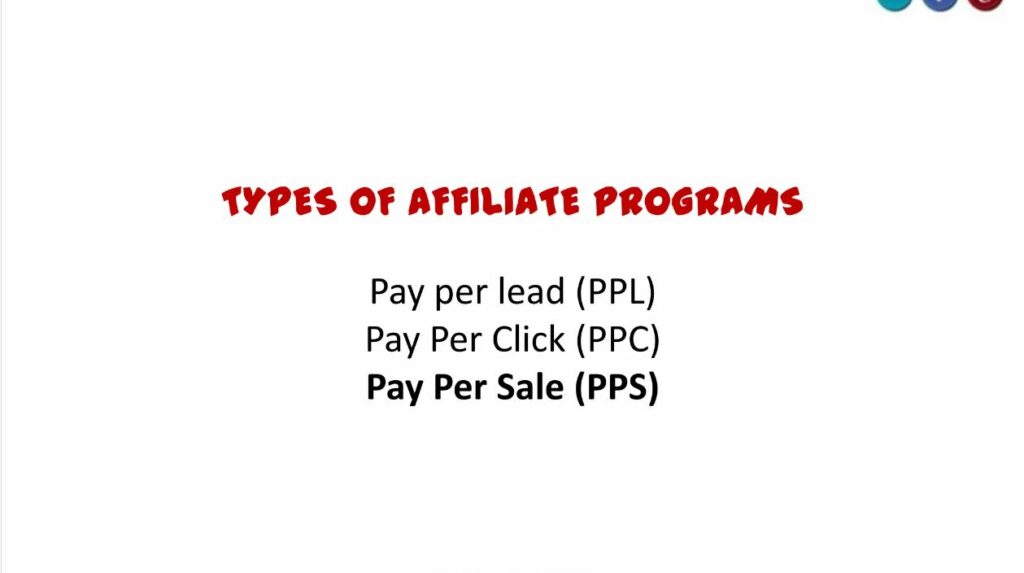Table of Contents
Definition Of Affiliate Marketing
Affiliate marketing is a type of performance-based marketing where a business rewards one or more affiliates (typically bloggers, influencers, or other content creators) for each visitor or customer brought by the affiliate’s marketing efforts. It is a form of revenue sharing where the affiliate is compensated for promoting products or services of another company.
In affiliate marketing, the affiliate acts as a middleman between the product or service provider and potential customers. The affiliate promotes the product or service through various marketing channels, such as social media, websites, or email, and earns a commission for every sale or action that is generated through their affiliate link.

Affiliate marketing can be an effective way for businesses to increase their sales and reach a larger audience without having to invest in traditional advertising. For affiliates, it can be a way to monetize their online presence and earn passive income by promoting products or services that they believe in.
There are different compensation models in affiliate marketing, including pay-per-click (PPC), pay-per-lead (PPL), and pay-per-sale (PPS). The choice of compensation model depends on the agreement between the affiliate and the merchant.
Overall, affiliate marketing is a popular and cost-effective way for businesses to increase sales and for affiliates to earn money by promoting products or services they are passionate about.
How affiliate marketing works
Affiliate marketing is a performance-based marketing strategy where an affiliate earns a commission for promoting products or services of another company. Here is how affiliate marketing typically works:

- Find a Suitable Affiliate Program: An affiliate identifies a company or product they wish to promote. This could be anything from physical products like gadgets or clothing, to digital products like software or online courses. The affiliate then joins the affiliate program of the chosen company, which usually provides them with a unique affiliate link.
- Promotion of Products or Services: The affiliate promotes the products or services using various marketing methods. This can include creating content such as blog posts, videos, or social media posts, or using paid advertising methods like PPC (Pay-Per-Click) or display advertising.
- Attracting Traffic and Customers: The affiliate drives traffic to the merchant’s website using their unique affiliate link. This link contains a tracking code that identifies the affiliate and ensures they are credited for any sales or conversions generated through their efforts.
- Tracking and Attribution: When a customer clicks on the affiliate link and makes a purchase or performs a desired action (like signing up for a newsletter or filling out a form), the tracking code records the transaction and attributes it to the affiliate. This data is stored in the affiliate program’s backend system.
- Earning Commission: The affiliate earns a commission for each successful referral or sale. The commission can be a fixed amount or a percentage of the sale value, depending on the terms of the affiliate program. The affiliate program provider usually pays the commission to the affiliate on a regular basis, such as monthly or quarterly.
- Continued Promotion and Optimization: To continue earning commissions, affiliates need to continuously promote the products or services and optimize their marketing strategies based on the performance of their campaigns. This may involve testing different advertising channels, improving content, or refining targeting methods to increase conversion rates and maximize earnings.
Affiliate marketing is a popular and effective way for businesses to increase their sales and for affiliates to earn passive income by promoting products or services they are passionate about. The success of an affiliate marketing campaign depends on various factors, including the quality of the product or service, the effectiveness of the affiliate’s marketing efforts, and the compatibility between the target audience and the promoted product or service.
3 types of affiliate marketing
There are three main types of affiliate marketing models that dictate how affiliates are compensated for their efforts:

- Pay Per Sale (PPS): In this model, the affiliate is paid a percentage of the sale value whenever a customer makes a purchase using their referral link. This is the most common type of affiliate marketing, and the commission can range from a low percentage to a substantial portion of the sale value.
- Pay Per Lead (PPL): In this model, the affiliate is paid a fixed amount or a commission whenever they refer a customer who completes a specific action, such as signing up for a trial, filling out a form, or providing contact information. The commission is usually lower than in the PPS model but can be more accessible to achieve.
- Pay Per Click (PPC): In this model, the affiliate is paid a commission whenever a customer clicks on their referral link, regardless of whether or not a sale is made. The commission is usually low and is based on the number of clicks rather than sales or leads generated. This model is less common and is typically used in conjunction with other affiliate marketing models.
The choice of affiliate marketing model depends on various factors, including the nature of the product or service being promoted, the target audience, and the goals of the affiliate. Some affiliates may prefer the PPS model because it offers higher potential earnings, while others may prefer the PPL or PPC models because they are easier to achieve or are better suited to their marketing strategy.
Many affiliate programs offer a combination of these models, allowing affiliates to choose the one that best fits their needs and goals. Additionally, some affiliate programs offer performance bonuses or incentives based on the number of sales or leads generated, further incentivizing affiliates to promote the products or services effectively.
Pros and cons of affiliate marketing
Affiliate marketing, like any other business model, has its pros and cons. Here’s a look at some of them:
Pros:
- Low Startup Costs: It’s relatively easy and inexpensive to start affiliate marketing. You don’t need to create a product, manage inventory, or deal with customer service. You can start with a website, social media presence, or email list.
- Passive Income Potential: Once set up, affiliate marketing can provide a steady stream of income with minimal effort. You earn commissions for sales generated through your affiliate links, even while you’re sleeping or focusing on other tasks.
- Flexible Work Hours: You have the freedom to work whenever and wherever you want. There are no set working hours or location requirements. This flexibility is especially attractive for those with busy schedules or those who prefer a more nomadic lifestyle.
- No Inventory or Customer Service: You don’t need to handle product inventory or customer service issues. This can save a lot of time and hassle.
- Unlimited Earning Potential: There’s no cap on how much you can earn through affiliate marketing. As you gain experience and grow your audience, your earning potential can increase substantially.
- Access to Large Audience: By partnering with established brands or companies, you can leverage their brand recognition and access their audience, which can help you get started more quickly.

Cons:
- Competition: Affiliate marketing is a popular way to make money online, which means there’s a lot of competition. You need to find a niche and differentiate yourself to stand out.
- Uncertain Income: Your income can be unpredictable, especially in the beginning. It can take time to build a reliable stream of income, and there’s always a risk that sales will fluctuate.
- Dependence on Third-Party Platforms: If you rely on third-party platforms (e.g., social media, YouTube, or a blog) for your affiliate marketing efforts, you’re at the mercy of their policies and algorithms. Changes to these platforms can affect your ability to reach your audience.
- No Control Over the Product: You have no control over the product or service you’re promoting. If the product doesn’t meet customer expectations or if the company changes its policies, it can reflect poorly on you and affect your credibility.
- Challenging to Scale: While it’s possible to scale an affiliate marketing business, it can be challenging. You need to continually grow your audience and find new opportunities to promote products or services.
- Affiliate Links Can Be Disruptive: Some people may find affiliate links annoying or intrusive, especially if they’re not clearly disclosed. This can affect your credibility and reputation if not handled properly.
Despite these challenges, many people find success with affiliate marketing. It can be a rewarding way to generate passive income and build a business on your terms. However, it’s important to approach it with realistic expectations and a solid strategy.
Why be an affiliate marketer?
There are several reasons why people choose to become affiliate marketers:

- Low Barrier to Entry: Starting an affiliate marketing business requires minimal investment compared to other business models. You don’t need to create a product, manage inventory, or handle customer service.
- Passive Income Potential: Once you set up your affiliate marketing system, it can generate income for you on autopilot. You earn commissions for sales generated through your affiliate links, even while you’re sleeping or focusing on other tasks.
- Flexibility: You have the freedom to work whenever and wherever you want. There are no set working hours or location requirements. This flexibility is especially attractive for those with busy schedules or those who prefer a more nomadic lifestyle.
- No Customer Service: You don’t need to deal with customer service issues, such as returns or complaints. The product owner or merchant handles these aspects.
- Unlimited Earning Potential: There’s no cap on how much you can earn through affiliate marketing. As you gain experience and grow your audience, your earning potential can increase substantially.
- Access to Large Audience: By partnering with established brands or companies, you can leverage their brand recognition and access their audience, which can help you get started more quickly.
- Opportunity for Passive Income: Affiliate marketing offers the potential for passive income. Once you have your systems in place and your content out there, you can continue to earn money from your affiliate links for months or even years to come.
- Variety of Products to Promote: As an affiliate marketer, you can choose from a wide range of products and services to promote. This allows you to focus on products that align with your interests and expertise.
- No Product Creation Required: You don’t have to create or develop any products yourself. This eliminates the need for product research, development, manufacturing, and other related tasks.
- Scalability: Affiliate marketing is a scalable business model. As your audience grows and your reach expands, you can increase your earnings by promoting more products or services or by optimizing your marketing strategies.
- Networking Opportunities: Affiliate marketing offers the opportunity to connect with other marketers and entrepreneurs in your niche. This can lead to valuable partnerships, collaborations, and mentorship opportunities.
- Potential to Work from Anywhere: With the rise of remote work and digital nomadism, affiliate marketing can provide the flexibility to work from anywhere in the world with an internet connection.
- No Administrative Overhead: As an affiliate marketer, you don’t need to worry about administrative tasks like payroll, taxes, or legal compliance. The product owner or merchant handles these aspects.
- Opportunity to Monetize Existing Content: If you already have a blog, website, social media following, or email list, you can leverage these assets to start earning money through affiliate marketing.
- Opportunity for Personal and Professional Growth: Affiliate marketing can provide opportunities for personal and professional growth, including learning new skills, building relationships, and developing your brand and online presence.
While affiliate marketing offers many advantages, it’s important to approach it with realistic expectations and a solid strategy. Like any business, success in affiliate marketing requires dedication, hard work, and continuous learning.
How do affiliate marketers make money?
Affiliate marketers make money through commissions earned from promoting products or services of other companies. Here’s a breakdown of the process:

- Choose a Product or Service: Affiliate marketers select products or services they believe in and that align with their target audience’s interests. These can be physical products like clothing, electronics, or gadgets, or digital products like software, online courses, or subscriptions.
- Join an Affiliate Program: Affiliate marketers join an affiliate program or network that offers the products or services they want to promote. The affiliate program provides them with a unique tracking link, also known as an affiliate link, which tracks referrals and sales generated through the marketer’s efforts.
- Promote the Product or Service: The affiliate marketer promotes the product or service through various marketing channels, such as a website, blog, social media, email marketing, or paid advertising. They create compelling content that educates their audience about the benefits of the product or service and encourages them to make a purchase or take a specific action (such as signing up for a free trial or downloading a resource).
- Attract Traffic and Customers: When a customer clicks on the affiliate marketer’s unique tracking link and makes a purchase or takes the desired action, the tracking link records the transaction and credits the sale or lead to the affiliate marketer. The affiliate marketer earns a commission for each sale or lead generated through their efforts.
- Earn Commissions: The affiliate marketer earns a commission for each successful referral or sale. The commission can be a fixed amount or a percentage of the sale value, depending on the terms of the affiliate program.
- Track Performance and Optimize: Affiliate marketers track the performance of their marketing efforts, including the number of clicks, sales, leads, conversion rates, and revenue generated. They use this data to optimize their marketing strategies and improve their performance over time.
Overall, affiliate marketers make money by promoting products or services of other companies and earning commissions for the sales or leads they generate. The amount of money they make depends on various factors, including the quality of the product or service, the effectiveness of their marketing efforts, and the size and engagement of their audience.
How to start affiliate marketing in 5 steps
Starting affiliate marketing requires planning and implementation. Here are five essential steps to start:
- Choose Your Niche: Your niche is the area or market segment in which you’ll focus your affiliate marketing efforts. This can be anything from fitness equipment to pet supplies or personal finance. It’s crucial to select a niche that aligns with your interests, expertise, and the preferences of your target audience. This will make it easier to create relevant content and attract potential customers.
- Research and Select Affiliate Programs: Once you’ve chosen your niche, the next step is to research and select affiliate programs that offer products or services related to your niche. Look for programs with a good reputation, attractive commission rates, and products or services that are in demand. Some popular affiliate programs include Amazon Associates, ShareASale, and ClickBank, but there are many others available as well.
- Build Your Platform: Your platform is where you’ll promote affiliate products or services and engage with your audience. This can be a website, blog, YouTube channel, social media account, or email list. It’s essential to create high-quality, valuable content that attracts and engages your target audience. This can include blog posts, videos, reviews, tutorials, or social media posts. Your content should be informative, relevant, and provide value to your audience.
- Promote Affiliate Products: Once you have your platform set up and your content created, it’s time to start promoting affiliate products or services. This can be done by adding affiliate links to your content, writing reviews or recommendations, creating comparison posts, or running paid advertising campaigns. It’s essential to disclose your affiliate relationships and be transparent with your audience about your affiliate marketing activities.
- Track and Optimize Performance: As you start promoting affiliate products or services, it’s crucial to track your performance and optimize your marketing efforts based on the data. This can include monitoring your click-through rates, conversion rates, and revenue generated. Use this information to identify what’s working well and what can be improved. Experiment with different strategies and tactics to see what resonates best with your audience.
Starting affiliate marketing is relatively straightforward, but it requires dedication, consistency, and continuous learning. By following these steps and putting in the effort, you can start building a successful affiliate marketing business and generate passive income online.
How to join Shopify’s affiliate program
To join Shopify’s affiliate program, you need to follow these steps:
- Visit Shopify’s Affiliate Program Website: Go to Shopify’s official affiliate program page (https://www.shopify.com/affiliates) and click on the “Sign Up” button.
- Create a Shopify Partner Account: If you don’t already have a Shopify Partner account, you’ll need to create one. A Shopify Partner account allows you to access the affiliate program and other partnership opportunities with Shopify. Fill in the required information to create your account, including your name, email address, password, and any other requested details.
- Log In to Your Partner Account: Once you’ve created your account, log in to your Shopify Partner account using your email address and password.
- Complete Your Profile: After logging in, you’ll be prompted to complete your profile. This includes providing more details about yourself and your business, such as your location, business name, website URL, and how you plan to promote Shopify as an affiliate.
- Agree to the Terms and Conditions: Before joining the affiliate program, you’ll need to review and agree to Shopify’s Affiliate Program Agreement, which outlines the terms and conditions of the program.
- Join the Affiliate Program: After agreeing to the terms and conditions, you’ll be directed to the affiliate program dashboard. Here, you can find your unique referral link, track your earnings, access marketing materials, and more.
- Start Promoting Shopify: Once you’re a member of the Shopify affiliate program, you can start promoting Shopify’s products and services to earn commissions. You can promote Shopify through your website, blog, social media channels, email newsletters, and other marketing channels.

Remember, as an affiliate, it’s essential to disclose your affiliate relationships and be transparent with your audience about your affiliate marketing activities. Follow Shopify’s guidelines and best practices for promoting their products and services to ensure a positive experience for your audience.
It’s also important to keep in mind that affiliate marketing requires dedication, consistency, and continuous learning. It may take time to see significant results, so be patient and stay committed to your efforts.
Tips for affiliate marketing success
Affiliate marketing can be a rewarding endeavor, but success in this field requires dedication, persistence, and strategic planning. Here are some tips to help you succeed in affiliate marketing:

- Choose a Niche You’re Passionate About: Select a niche that you are genuinely interested in and passionate about. This will make it easier for you to create high-quality content that resonates with your audience. Your passion and expertise will also help you establish credibility and trust with your audience.
- Research and Select Affiliate Programs Carefully: Choose affiliate programs that offer products or services that are relevant to your niche and that you believe in. Look for programs with attractive commission rates, good tracking, and a solid reputation. Some popular affiliate programs include Amazon Associates, ShareASale, and ClickBank, but there are many others available as well.
- Focus on Quality Content: Create valuable, informative, and engaging content that provides real value to your audience. This can include blog posts, videos, reviews, tutorials, or social media posts. Your content should be well-researched, unique, and help solve a problem or address a need for your audience.
- Build and Engage with Your Audience: Build a loyal and engaged audience by interacting with them regularly. This can include responding to comments, answering questions, and engaging with your audience on social media. Building a relationship with your audience will help you establish trust and credibility, which is essential for successful affiliate marketing.
- Promote Products Wisely: Avoid promoting products or services solely for the sake of earning commissions. Instead, focus on promoting products that you genuinely believe in and that you think will be valuable to your audience. Be honest and transparent about your affiliate relationships, and only promote products that you have personally tried and tested.
- Use Multiple Channels: Diversify your marketing efforts by using multiple channels to reach your audience. This can include your website, blog, social media, email marketing, and paid advertising. Experiment with different channels and strategies to see what works best for your audience.
- Optimize Your Affiliate Links: Optimize your affiliate links to maximize clicks and conversions. This can include using clear and compelling calls-to-action, using trackable links, and testing different placements and formats for your links.
- Track and Analyze Your Results: Monitor your performance regularly and analyze your results to identify what’s working well and what can be improved. Use this information to optimize your marketing efforts and improve your performance over time.
- Stay Informed and Educated: Stay up-to-date with the latest trends, best practices, and changes in the affiliate marketing industry. Continuous learning and education will help you stay ahead of the competition and adapt to changes in the market.
- Be Patient and Persistent: Affiliate marketing takes time and effort to see significant results. Be patient and persistent, and don’t get discouraged if you don’t see immediate success. Stay committed to your efforts, and success will follow.
Remember, success in affiliate marketing requires dedication, hard work, and continuous learning. By following these tips and staying focused on providing value to your audience, you can build a successful and sustainable affiliate marketing business.
